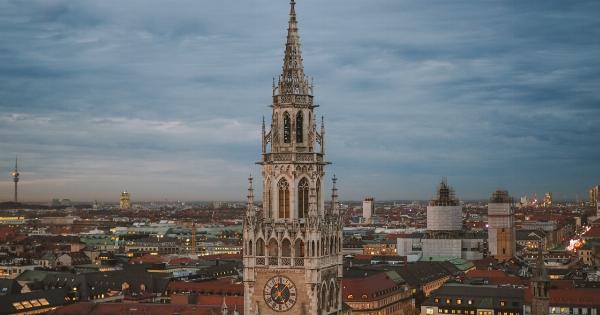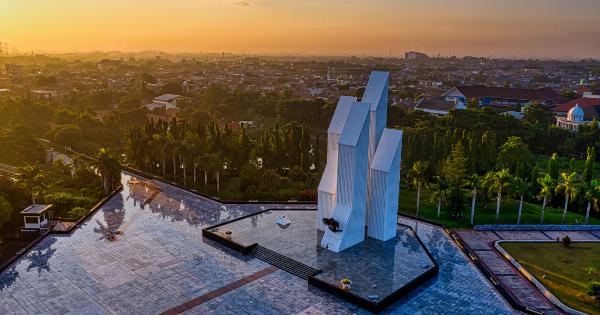Generosity plays a vital role in building stronger communities by fostering a culture of giving, promoting social cohesion, and addressing societal challenges.
In a world where individuals, communities, and societies are interconnected, acts of generosity contribute towards the development and welfare of everyone involved. From local neighborhoods to global initiatives, generosity has the power to transform lives and create a more inclusive and harmonious world.
Fostering a Culture of Giving
Generosity helps create a culture of giving within communities. When individuals demonstrate acts of kindness and generosity, it inspires others to follow suit.
A simple act of donating to a local charity or volunteering at a community center can have ripple effects that encourage others to engage in similar acts of generosity. The culture of giving not only benefits those directly involved but also strengthens the community as a whole by fostering a sense of togetherness and solidarity.
Addressing Social Inequality
Generosity plays a significant role in addressing social inequality within communities. By sharing resources, time, and skills, individuals can help bridge economic gaps and empower marginalized groups.
For example, providing financial assistance to low-income families or offering mentorship programs to underprivileged youth can contribute to equal opportunities and social mobility. By addressing these inequalities, communities can become more cohesive and resilient.
Promoting Social Cohesion
Generosity promotes social cohesion by encouraging individuals from diverse backgrounds to come together and work towards common goals. When people extend kindness and support to others, it breaks down social barriers and fosters a sense of unity.
This can create a more inclusive community where everyone feels valued and connected. Through acts of generosity, communities can build stronger relationships and develop a collective identity.
Supporting Local Initiatives
Generosity is crucial in supporting local initiatives and community development projects.
From funding neighborhood improvement programs to providing resources for educational institutions, acts of generosity can uplift communities and enhance quality of life. Additionally, generous contributions to local businesses and non-profit organizations stimulate economic growth, creating job opportunities and improving overall well-being within a community.
Building Trust and Reciprocity
Generosity is a driving force behind building trust and reciprocity within communities. When individuals and organizations willingly give, it builds a sense of trust and reliability.
This trust then encourages others to reciprocate through their own acts of generosity. The cycle of giving and receiving fosters a sense of interconnectedness and strengthens the bonds between community members. Trust and reciprocity are essential for building long-lasting relationships and creating a supportive community network.
Fostering Volunteerism and Civic Engagement
Generosity often leads to increased volunteerism and civic engagement within communities. When individuals witness the positive impact of acts of generosity, they are more inclined to get involved themselves.
Whether it’s volunteering at local shelters, participating in community clean-up drives, or organizing fundraising events, generosity inspires individuals to actively contribute to the betterment of their communities. This increased volunteerism and civic engagement can bring about positive social change and improve community well-being.
Promoting Health and Well-being
Generosity has a direct impact on promoting health and well-being within communities. Acts of generosity, such as providing food or healthcare assistance to those in need, can improve the physical and mental well-being of individuals facing hardship.
Moreover, acts of generosity are often reciprocated with feelings of gratitude, fostering positive emotions and psychological well-being for both the giver and the receiver. By promoting health and well-being, communities can increase their capacity for growth and resilience.
Encouraging Global Collaboration
Generosity extends beyond local communities and plays a crucial role in fostering global collaboration. In an increasingly interconnected world, acts of generosity towards global causes can have far-reaching effects.
Whether it’s donating to international relief efforts, supporting sustainable development goals, or participating in cross-cultural exchanges, generosity helps bridge geographical boundaries and promotes solidarity among diverse communities. Through global collaboration, communities can collectively tackle global challenges and work towards a more sustainable future.
Inspiring Future Generations
Generosity serves as a powerful tool to inspire and influence future generations.
When children and young people witness acts of generosity and experience the positive impact it can have on communities, they are more likely to adopt a generous mindset themselves. By instilling values of empathy, compassion, and generosity in young individuals, communities can create a legacy of giving that will persist and continue to strengthen over time.
The inspiration and impact of generosity can shape the leaders and changemakers of tomorrow.
Conclusion
Generosity plays a significant role in building stronger communities by fostering a culture of giving, promoting social cohesion, addressing social inequalities, and tackling diverse societal challenges.
It stimulates trust, encourages reciprocal acts, and inspires volunteerism and civic engagement. The impact of generosity extends beyond local communities and contributes to global collaboration.
By recognizing and embracing the power of generosity, communities can create a more inclusive, compassionate, and resilient world for the present and future generations.






























